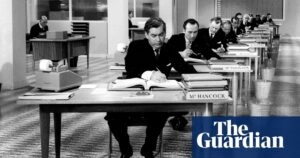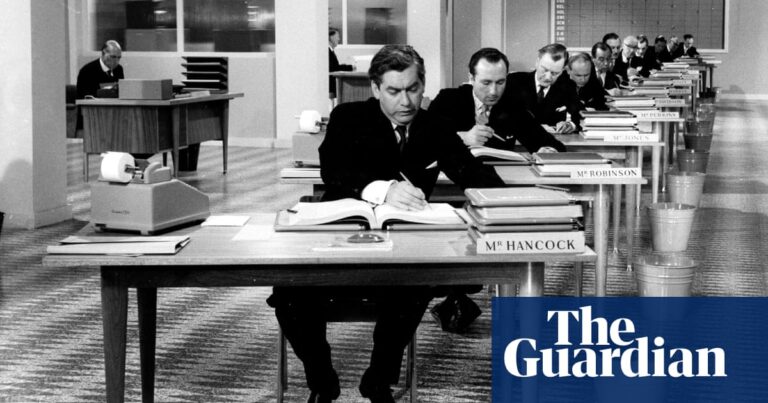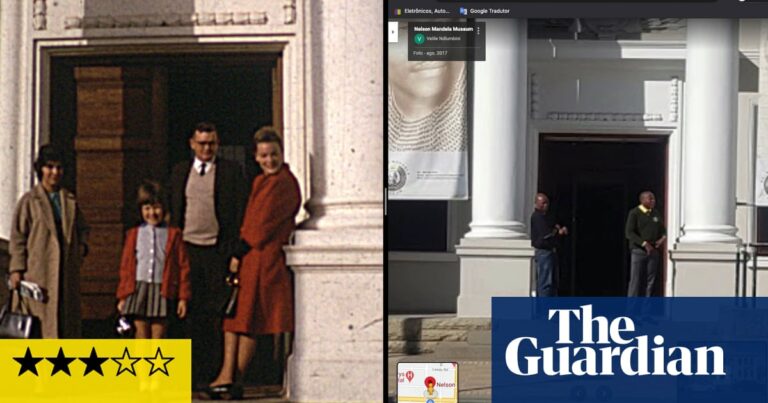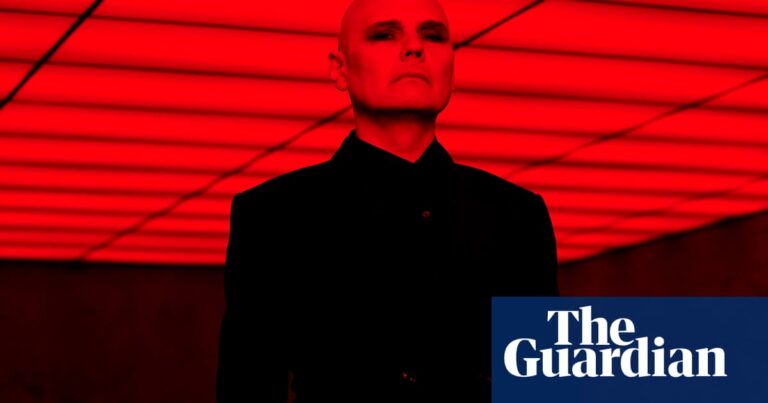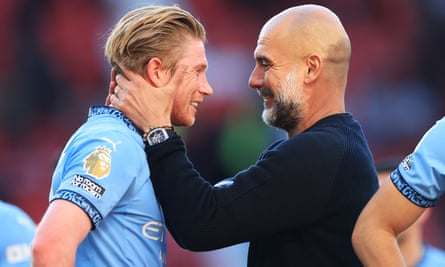‘I’ve always liked the company of older people,” says Julian Clary, still smoothly beautiful at 64. “I like the fact they’ve lived a life they are often assumed not to have done.” He pauses. “What old people don’t know about recreational sex,” he continues, cadence familiar as a cuckoo, “you could write on the back of an incontinence pad.”
There are plenty of those knocking about in Much Ado About Dying, a documentary about Clary’s old drama teacher. But David Gale – 86 when we first have the pleasure – does not put them to their intended use. They plug holes in the wall, drafts in the window. One becomes a tea cosy.
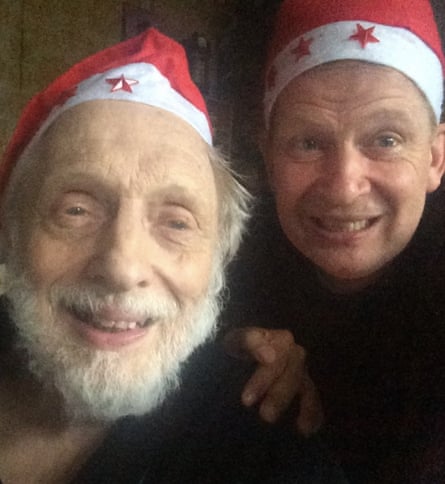
His toilet needs are instead met by jam-jars, yoghurt pots and, when necessary, ice-cream tubs: a sort of anarchic incontinence improv which earns an unimpressed reception from district nurses. There’s more. He eats exclusively tinned soup. Toothpaste drapes over every socket (he’s read that mice hate mint). Ailing heaters, propped on stacks of books – Chekhov’s gun klaxon – slow-cook his lower legs like kebab meat. He has four of everything, just in case.
The final straw was the nudity. “David would say: ‘You’re a nurse, for God’s sake!’” says his nephew, Simon. “‘You’re meant to be used to people not having their clothes on!’” But with social services overstretched, and unconvinced of the urgency of Chambers’ case, it was left to his nephew to understudy.
Simon is now releasing a film about the four remarkably eventful years he spent caring for his uncle until the latter’s death in early 2020. It has taken a while – Simon likens it to “a homemade quiche, made in my bedroom on a laptop, which is very much the flavour of David” – and funded entirely by bartering. He refitted one editor’s bathroom; another he got by with just doing their taps.
Much Ado About Dying is a work of uncompromising intimacy and emotional complexity. David and Simon – also gay and single, proud and alarmed about morphing into his uncle – clash and bicker. The cast also includes Rodrigo: a hot, heterosexual “carer” who films a coquettish David in the bath and mysteriously winds up £25,000 wealthier. A Polish couple move in with six dogs and unsustainable promises.
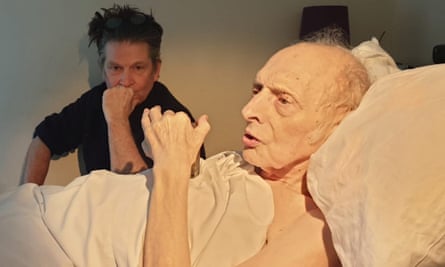
The film treats all parties with generous ambivalence. “It’s transactional,” says Simon. “There’s a real blur. It’s one of the big problems of being a family carer: nobody tells you what to do, how to do it, what’s right, what’s wrong, and whether these people are a good thing or a bad thing.”
All situations were symbiotic. David appreciated nuance. “The old need the young and the young need the old,” he giggles to Rodrigo, amid the suds. “And when they both know it there can be a good exchange.”
“Many of us,” says Simon, “if we were 86, would love to be infatuated with an attractive young person. What a way to go! Maybe that’s worth a lot of money. The same with the Polish helpers. There’s clearly love there.”
Flawed companionship may be more valuable than practical support. “I realised that loneliness is the worst thing,” says Simon, “more than the health problems or all the paperwork.” Offers of help with the garden should be rethought. “They’d much rather they left the grass to grow long and had a cup of tea and a chat.”
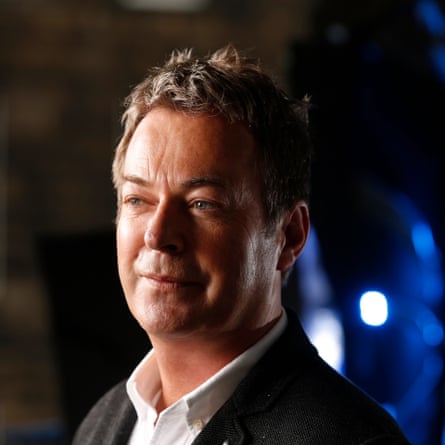
Older gay people are canaries down the coalmine of our dismantled social care system, says Simon, because they are less likely to have children. Yet the experience of Aids means they are perhaps more primed to pick up the slack: “In the late 80s and 90s people did end up looking after each other, because a lot of biological families weren’t there or turned their backs.”
Clary nursed his boyfriend, Christopher, who died in 1991. Fifteen years earlier, he had been a pupil of David’s at Goldsmiths. Now, he is arranging care for his mother, Brenda, 92. “I try to make sure that she’s not on her own all the time,” he says. “It’s about compassion. What you don’t want is a loss of control. You don’t want decisions taken from you.”
Clary and David did not keep in touch, but he remembers him as “dynamic, gleeful, playful, enigmatic. His enthusiasm was contagious.” Clary was part of a group David took to the Edinburgh festival. “Everyone was equal. It was all very 70s and left wing. We all slept in rows on foam mattresses in a scout hut. There was a rota of who was cooking dinner and who was cleaning the toilets. No starry behaviour allowed.”
One night, Clary had a tummy ache; David shooed him on stage anyway, invoking Olivier and saying he’d never be a good actor unless he overrode pain. “And I’ve never missed a show in all my years,” says Clary, “so I can thank David for that.”
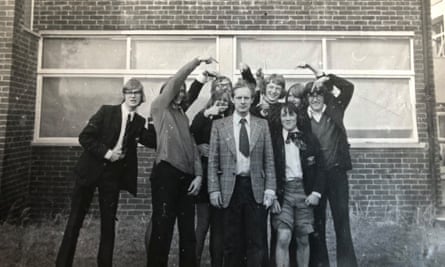
David’s commitment to his craft sustains him, too. Frailty cannot fell his spirits. He is constantly curious, remorselessly cheery. He monologues all day, every day, does interpretative dance in his recliner and gives us lashings of King Lear. “He saw his life sort of like a play,” says Simon. “I think that helped him a lot to be optimistic.” It helped Simon decide how candid to make his movie. “I thought long and hard about how to represent David’s vulnerabilities. But he was an actor and it wasn’t just a job for him. He lived acting. His body was a tool telling truths.”
Even absolute calamity is greeted as a good opportunity to refresh the backdrop and swap props. It could be annoying, concedes Simon. It was also David’s secret weapon. “One of the worst things about going to look after an old person is when they’re grumpy. Suddenly, your spirits drop. ‘I’ve been so lonely for the last three days. Where have you been?’”
after newsletter promotion

David’s playful delight in the face of infirmity did not surprise Clary: “It was perfectly in character with the rest of his life that it should be so epic. I thought his desire to entertain and put on a show right until the end was amazing. I love that he was still performing and getting laughs and had a twinkle in his eye until there wasn’t one.
“It fulfils a need. If I can get a laugh out of my husband or a stranger, it is as much of a thrill as being on stage at the Palladium. It’s that hit. I completely understand. It doesn’t ever go away. I saw Barry Humphries in one of his last performances in London aged 89: being on stage was his safe place, and he was very happy there. You can control that world. It’s very addictive and it’s mutually beneficial, to you and to the person who’s laughing. A win-win situation.”
Clary’s advocacy is explicable: he likes the film, he owes its subject, and he knows the territory. Still, a celebrity happily selling something in which they have no material interest is unusual: testimony to all three men – and the movie.
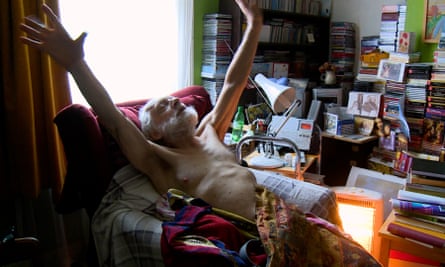
This is perhaps yet more so with Juliet Stevenson: a total stranger until Simon sent her the screener having heard her rave on the radio about King Lear. “I was entranced,” she says, ringing from Iceland, where she’s playing Edward the Confessor’s mum in a new series.
“I think it’s the most beautiful film, incredibly moving and meaningful and funny and unique. Such an act of love and of exploration.” She was blown away by the snatches of David’s Lear we hear: “He’s absolutely brilliant.” She’s never seen another actor nail the howling vowels as he does. “You watch David in bed and think: ‘He’s genius.’”
There’s another reason it chimed: Stevenson’s mother, Virginia, died two years ago, aged 97. “She was an astonishingly smart, intelligent, courteous, gracious, outward looking, lovely woman. Lots of dignity, lots of courage.
“I saw her decline into a most terrible state of humiliation and paranoia. It was the most awful exit from the world. She became convinced I was the devil inhabiting the body of her daughter and that of her beloved grandchildren, too. About as bad as it can get in terms of losing her before we lost her.”
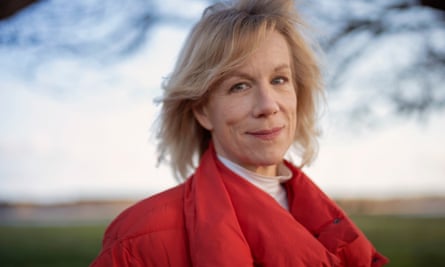
Virginia shared with David a horror of losing agency. Watching her do so was “very, very painful … the panic and her fear”, says Stevenson, worsened by her own part in it. “I felt intensely compromised by having to lead her out of her own home because it was no longer manageable and put her into a care home without her knowing that’s what was happening.”
The film, perhaps, is a tonic: a reminder not all curtain calls are so tragic. “What I loved about David’s character,” she says, “was his capacity to embrace his loss of capacity, his physical disabilities, his dependence on others”. His training helped, she thinks. Actors have both a reduced sense of status, “because we’re employees always, and we’re always only as good as the next job” and an “inability to distinguish between life and play, which meant he dealt with his decline with this glorious sense of performance.”
Small wonder she wants to help it find it an audience. “The worst thing as an actor is to go on stage and there’s nobody in the theatre. Or nobody watches your show. We are only actors if we have somebody to act to.” David for all his tendency to talk to himself in private, “for all his delicious sort of childlikeness does need an audience. And he hasn’t had it for a long time.”
The film has reanimated David for an extraordinary encore. He would, thinks Simon, have been “completely cock-a-hoop” at this belated embrace. “He’d have absolutely loved it all.”
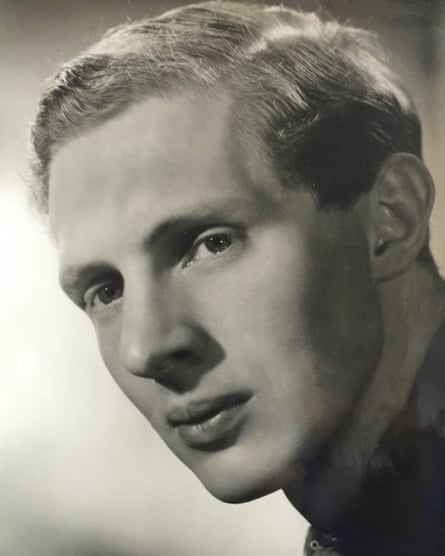
And there is one more reason to champion the film, says Stevenson, as she heads back to her trailer and her veil. How often do you get the chance to elevate elderly people? “I’m almost incredulous about how old people now in our country are so chronically undervalued,” she says. Her husband, the anthropologist Hugh Brody, tells her about how, “in other cultures, you don’t get dismissed and tossed out just because you’re old. Your wisdom and experience is really valued.”
But in the UK, “old is a derogatory term” and society is structured to further exclusion. The rise of the virtual world means an entire generation is “absolutely buggered”.
“They’re literally invisible there. Their experiences are absent from the place which is increasingly forming people’s opinions, sensibilities, tastes and sense of what is true.”
King Lear cautions of the fate that awaits when the old are betrayed by the young. When Stevenson was a child, she saw the play for the first time and was immediately sure of two things: she wanted to act, and she identified not with Cordelia, but Lear. Maybe one day she’ll play him yet.
Source: theguardian.com

